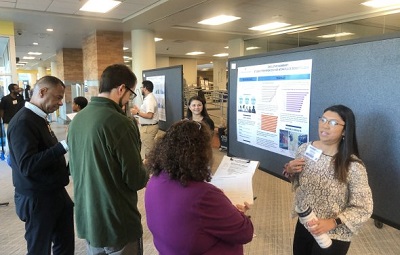Description/Abstract/Artist Statement
Creativity is often associated with people experiencing sudden flashes of inspiration and understanding. These type of experiences have been called insights or “Aha!” moments. “Aha!” moments or insightful solutions are often described as answers that suddenly appear in the mind, with little effort, and extreme confidence that the answer is correct. This can be contrasted with incremental or analytically solved problems where solutions are reached through effortful, deliberate, and strategically application of prior knowledge. Researchers have often used subjective ratings of participants’ own “Aha!” experiences to differentiate between insightful and incrementally solved problems. In the current study we investigated the construct validity of these Aha! ratings, by presenting participants with the three different aspects of the “Aha!” rating (Suddenness, Effort, and Confidence) as separate measures to see if these aspect of the solving experience were highly correlated.
Presentation Type
Event
Disciplines
Psychology
Location
Learning Commons @ Perry Library Conference Room 1311
Start Date
2-13-2016 10:15 AM
End Date
2-13-2016 11:15 AM
Upload File
wf_yes
Included in
A Methodological Study of the Use of “Aha!” Ratings in Research on Insight Problem Solving and Creativity
Learning Commons @ Perry Library Conference Room 1311
Creativity is often associated with people experiencing sudden flashes of inspiration and understanding. These type of experiences have been called insights or “Aha!” moments. “Aha!” moments or insightful solutions are often described as answers that suddenly appear in the mind, with little effort, and extreme confidence that the answer is correct. This can be contrasted with incremental or analytically solved problems where solutions are reached through effortful, deliberate, and strategically application of prior knowledge. Researchers have often used subjective ratings of participants’ own “Aha!” experiences to differentiate between insightful and incrementally solved problems. In the current study we investigated the construct validity of these Aha! ratings, by presenting participants with the three different aspects of the “Aha!” rating (Suddenness, Effort, and Confidence) as separate measures to see if these aspect of the solving experience were highly correlated.


Comments
Faculty Mentor: Dr. Ivan K. Ash
Graduate Student Mentor: Kimberly Lee, M.S.